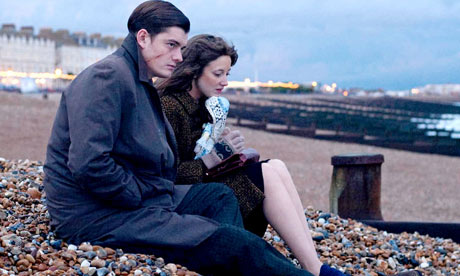
Any remake of a much-loved film provokes outrage, which usually turns out to be justified. The Boulting brothers' 1947 version of Graham Greene's Brighton Rock is considered by some the best British film of all time. Martin Scorsese, Terrence Malick and even the Hughes brothers have all considered revisiting this hallowed ground, but then balked at the prospect. Worrying territory, then, for a first-time feature director.
Rowan Joffé comes to the task armed with a best director Bafta for TV drama The Shooting of Thomas Hurndall and writing plaudits for Brit flicks 28 Weeks Later and Last Resort. Slim enough credentials you may think. Nonetheless, it is clear from the outset that he is quite ready to blaze his own trail.
By switching the action from the 30s to 1964, Joffé skirts the shadow not just of the Boultings' film but also of Greene's book. They are about evil and damnation; this film is not. The year Joffé has chosen is the nearest to our own in which people were still being hanged for murder. He needs the spectre of the death penalty, but the 60s are famously the era in which Britain shook off any remaining awe of religion. It should not therefore be surprising to discover that, this time around, the Catholicism of the main protagonists is no more than a baroque adornment of their plight. Their story has been secularised and given a new purpose.
The basics of Greene's artful plot remain in place. As in the book and the previous film, Pinkie, a youthful gang boss, murders a traitor. Rose, an even younger waitress, stumbles into his path and becomes a potential witness against him. He marries her to stop her giving evidence. Her devotion to him is as reckless as his own desperate vainglory, and as dangerous. Ida, her steadfast boss, gets on his case and tries to rescue her but her fate is already sealed.
Richard Attenborough's ominous mantle drops on the shoulders of Sam Riley. Riley impressed as Joy Division's Ian Curtis in Control three years ago, but Pinkie makes very different demands. In the book he is just 17, and his youth endows his wickedness with a kind of innocence. At the grand old age of 30, Riley cannot hope to capture that.
Nor is the character he creates nearly as distinctive as Attenborough's creepily sinister precursor. Riley gives us a ruthless hard man of a kind we have seen plenty of times before. Though his is a well-drawn part, he never manages to inhabit it completely. Nor does he show us how a man like Pinkie could charm a woman into loving him.
None of that matters, however, for this time the story is not about Pinkie. It is about Rose. He is a ruthless gangster who gets what is coming to him; she is a woman turned by a stroke of fate from mousy waitress into tragic heroine defining herself resolutely and disastrously in extreme circumstances.
It is not clear that Joffé knew immediately where his film was taking him. Redundant bits of the Greeneland ice-shelf still float around: just like Attenborough's Pinkie, this one declares his belief in "hell, flames, damnation and torments", but this time to no obvious effect. Still, whether Joffé intended it to or not, Andrea Riseborough's breathtaking performance as Rose soon overwhelms the drama. To say her achievement deserves an Oscar would be somehow to demean it.
Riseborough moves effortlessly and rivetingly from gawky passivity through obsessive infatuation and half-conscious self-deception to dogmatic self-belief, violent obduracy, suicidal devotion and detached resignation. Most of this is achieved through the slightest of facial tremors in unforgiving close-ups. Her portrayal of Rose grips the heart from the beginning and does not let go until the final frame. In the process, it turns the film into a hymn to female suffering, passion, dedication and delusion. Cinema has been here before often enough, but rarely more impressively.
Everything else comes to uphold the grandeur of Rose's fate. The brutality of gangland is merely an expression of the pervasive cruelty that shapes lives like hers. Warring mods and rockers widen the aura of casual menace. Helen Mirren's splendidly executed Ida counterpoints female self-destructiveness by embodying sanity, maturity and self-knowledge.
Cinematographer John Mathieson and an imaginative design team give us a Brighton that is no longer gloomy, as it was in 1947, but lurid and gaudy. This time the town is the backdrop to an epic human tragedy, not a charnel house for doomed souls. A splendidly bombastic score from Martin Phipps adds to a sense of operatic majesty.
Since they are so different, there is no need to compare this film with its predecessor. Suffice it to say that if that was a masterpiece, then so is this.

